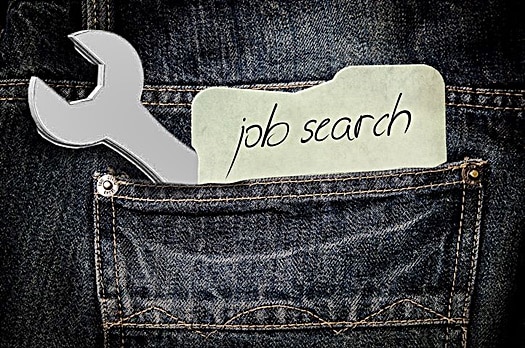Employers prefer to receive resumes that are clear and uncomplicated. If there’s an unexplained employment gap on your resume, you’re likely to be at a disadvantage. However, that’s not to say that employers will only hire people with continuous work histories.
If you’ve had a period of unemployment, some employers will be wary of you. That’s understandable, but it’s also something you have control over. By improving your resume, you can prevent employers from jumping to conclusions about your skills, capabilities, and work ethic.
In this guide, we’ll explain why gaps are so worrying for employers. We’ll also show you how to reduce their concerns so that they don’t hold an employment gap against you. In some cases, you might even be able to use it to your advantage.
Why Do Employment Gaps Matter to Employers?
It’s not the gap itself that is problematic. Rather, it’s the potential reasons behind the missing information. When an employer sees an unexplained gap on a resume, they’ll have many unanswered questions. Is this person lazy? Were they fired by a previous employer? What were they doing to fill their time? Employers are more likely to reject your application immediately.
As such, it’s usually better to be upfront and explain any periods of unemployment on your resume. More than anything else, this shows you are an honest person – a trait which most employers look for in new recruits.
You should avoid “over-sharing” information on your resume. Honesty is the best policy but presenting yourself in the best possible light is also essential. Ideally, when writing your resume, you should strike a balance between being open and being discreet.
Negative Assumptions About Employment Gaps
Imagine an employer has a stack of 50 resumes to review, and they need to shortlist five candidates as quickly as possible. Although they’ll use objective criteria to select candidates (i.e. ‘Is this person qualified?’), they’ll also rely on “gut feelings” and automatic assumptions. So, if you have an unexplained gap on your resume, what kind of assumptions are employers making about you?
-
You’re Lazy
If you’ve been out of work for a long time, employers may worry that you’re not suited to the 9-5 office lifestyle. At best, they might assume you’re flaky, and at worst they may think you’re downright lazy.
Thankfully, this is an assumption that can be challenged, because many other “roles” require us to commit to regular routines. For example, if you’re a parent or a member of a sports team, you’ll know a thing or two about the importance of routine. You can allude to this on your resume or cover letter.
Also, if you don’t specify what you were doing during a career break, this could also come across as lazy. It suggests you don’t pay much attention to detail in your written work. Many employers won’t bother calling you to an interview to try and fill in the gaps. As such, it’s critical to make your resume as clear and user-friendly as possible.
-
You Don’t Have a Strong Work Ethic
Every employer wants to select a candidate who has a strong work ethic. If you hop from one job to the next, or you’ve been unemployed for a long stretch, employers might assume you have no burning desire to work.
Of course, this assumption is often a false one, because many job seekers are desperate to find work.
-
You’ve Been Fired by a Previous Employer
There are two reasons why employers could make this assumption. Firstly, employers assume that no worker would intentionally leave a job unless they’ve got another job to go to. It’s generally expected that people will work their way up a career ladder throughout their lifetime. As such, if someone leaves a company, it’s usually because they’ve secured a better position elsewhere. So, if someone leaves a good job, but then doesn’t start working anywhere else, this suggests they did not leave the previous company out of choice.

Secondly, an employer might assume that your employment “gap” was not a gap at all. They might assume you were working for a company, got fired, and now wish to erase them from your work history. Both of these assumptions are flawed, but it just goes to show how quickly recruiters jump to conclusions if you don’t explain employment gaps clearly on your resume.
-
You Don’t Need to Make an Income
If you go several years without working, you might give employers the impression that you don’t need the money. If you don’t have any bills to pay, some companies might be reluctant to hire you in case you leave them in the lurch when you get bored of the job.
This is the reason why it’s important for people with unconventional work histories to write a compelling “summary” on their resume. In this section, you can talk about your motivations to work, and alleviate any concerns employers might have about your commitment to working.
-
You Have a Physical or Mental Health Condition
Employers may assume that you’ve been diagnosed with a physical or mental health condition and that this stopped you from working. They may worry is whether it still affects you and whether it would prevent you from performing the job effectively.
It’s not uncommon for employment gaps to be caused by health conditions or disabilities. If this applies to your situation, you can seek advice from the Equal Employment Opportunity Commission if you think a recruiter is discriminating against you on this basis.
-
You Lack Skills
If you’ve been out of work for several years, employers might worry that you’ve “fallen behind” concerning IT skills and industry knowledge. You can challenge this by including evidence of voluntary work, internships, schooling, or relevant online courses on your resume.
Also, focusing on what you can offer (rather than what you can’t) will help you stand out amongst your peers. Your IT skills might have dwindled over the last few years, but perhaps you’ve developed strong organizational skills through caring for your relative.
-
You’re Not a Good Catch
If you’ve been unemployed for a while, employers might assume you’ve been eagerly job-seeking all this time, but no job offers have come your way. This assumption is a double-edged sword; while they don’t believe you’re lazy, they do think you’ve been left on the shelf by other recruiters.
Employers want candidates who are desirable, and they don’t want to hire someone that’s just choosing them because they have no other options. If you show employers that you were doing something constructive during your employment gap, and weren’t necessarily desperate to find work, you might suddenly become more desirable to them.
Good Reasons for Gaps in Employment
Everyone’s circumstances are different, so there’s not necessarily a “good” or a “bad” reason for taking a break from work.
The following explanations are more likely to be acceptable to potential employers:
[su_list icon=”icon: check-circle”]
- You were raising a young family.
- You were caring for someone very close to you.
- You had an injury or health condition that stopped you from working.
- You were studying for a degree, a certificate, or a short course (particularly if the course is relevant to the job you’re applying for!)
- You were traveling. This can work in your favor but can also work against you depending on how you frame it on your resume.
- You were volunteering or interning because you wanted a career change.
- You were laid-off from a previous employer (this is especially relevant if you received severance pay, as this explains why you may not have sought a new job immediately).
- You were trying to start your own business or enterprise.
[/su_list]
All of these explanations are reasonable and could help to alleviate a recruiter’s concerns. It’s best not to lie if you truly weren’t in one of these situations. However, sometimes we don’t recognize or acknowledge the limits we had on us during periods of unemployment.
Perhaps you had a family to look after, and you did try to apply for jobs, but you couldn’t put much effort into the applications because you were running around after your kids. As such, you didn’t receive many responses from employers and remained unemployed for two years.
Instead of telling an employer that you were looking for work and couldn’t find it, it would be better to tell them that you were focused on your family during that time.
The Wrong Ways to Explain Gaps in Your Work History
Although honesty is usually the best policy, some personal revelations do not belong on your resume.

Avoid using any of the following excuses to explain gaps in your work history:
[su_list icon=”icon: check-circle”]
- I wanted a break from working – This makes you seem unpredictable.
- I was job seeking – If your gap is less than three months, this would be reasonable. However, if you were actively job seeking for more than three months with no success, this might put some employers off.
- I left to go on another overseas adventure – If you’re regularly traveling overseas for extended trips, employers will doubt your commitment to hard work. They may be frightened you’ll up-and-leave-them as soon as the job becomes too stressful.
- Telling a blatant lie – If you tell a recruiter you were caring for a sick relative, but you weren’t – and then the company hires you – be prepared to sustain this lie. The longer you work for a company, the closer you get to your colleagues, so this type of lie could easily be exposed at a later date.
- I was fired – It’s not necessary to disclose this information on your resume. If the job lasted longer than three months, list the job on your resume, but don’t state a reason for leaving. If you’re explicitly asked whether you’ve ever been fired from a job, then be honest and frame the situation as a learning experience. However, don’t initiate this awkward conversation by stating that you were fired on your resume. Also, don’t erase this job from your resume altogether if it lasted longer than three months, because the gap may look fishy to potential employers.
[/su_list]
How Long is Too Long for an Employment Gap?
According to popular opinion, a gap of more than one year looks very suspicious on a resume. But is it that simple? Well, it depends on your chosen industry (amongst other factors).
If you’re applying for a skilled job such as a doctor, engineer or teacher, employers will generally expect you to show commitment towards your career over your lifetime. These careers require many years of study, so it’s generally expected that candidates will work their way up the career ladder and won’t take any unnecessary breaks. Moreover, many skilled occupations require you to take continuing education classes to keep your skills up-to-date. So, it’s fair to say that if you’re applying for a skilled job, employment gaps of more than one year probably will raise some eyebrows from recruiters.
On the other hand, if you’re applying for an unskilled job in the retail sector, an employer is not necessarily expecting you to stick with this job for your whole life. These jobs are not “career professions” so your work history does not necessarily need to demonstrate a strong commitment to the retail sector. As such, if you’ve been unemployed for a couple of years, employers might not be too concerned.
There’s no such thing as a gap that’s “too long” because it depends on many factors, but we can predict that the longer the gap, the more questions you’ll face from recruiters.
How Many Gaps Is Too Many?
Again, this depends on several factors, such as how old you are, and how close together the gaps were. It’s protocol to list the last ten years of work history on your resume. If you recently left school, and you only have three years of work history in total, two short employment gaps in a 3-year period might seem suspicious. However, two short employment gaps over a period of 10 years would probably be more acceptable.
If you’re a job-hopper, and you have many employment gaps that are close together, this might suggest you’re not very committed to the employers you work for. However, there are several reasons why jobs come to an end, and some of these reasons do not reflect poorly on the candidate. For example, if you were hired on a fixed-term or seasonal contract, it’s crucial to state this on your resume so employers can understand why you weren’t employed for long.
Do Women Have It Easier than Men?
Whether you’re applying for a skilled or unskilled job, most recruiters would accept motherhood as a reasonable explanation for a career-break. Indeed, it’s quite common for moms to take several years away from the workplace to raise their family, and then return to work when their children are older.
Fathers might want to look after their children too, but would recruiters be more suspicious of a man who has a 5 or 10-year gap in his work history? According to a recent study published by the Academy of Management Journal, managers who had several gaps in their work history had lower incomes and less career satisfaction than managers who worked continuously. Not only that, male managers experienced this consequence much more severely than females, presumably because it’s more acceptable for women to take a career break.
So, it’s probably easier for women to follow a non-traditional career path than men. This could be because there is more support for women returning to work after a career break. Also, it could be because employers are more likely to overlook a lengthy career break if it has been taken by a woman.
That’s not to say that recruiters wouldn’t employ a man who’d spent time away from work to care for his family. Instead, a recruiter is less likely to assume he’s been away from work for family reasons unless it has been spelled out on his resume or cover letter.
How to Handle Employment Gaps on your Resume
As we’ve discussed, it’s possible that employers will make wrongful assumptions about you, based on the gaps in your resume. You can challenge these wrongful assumptions by writing a clear and informative resume.
If you don’t know where to start, consider the following tips:
-
Use the Three-Month Rule
In most cases, the three-month rule will serve you well. If your employment gap was less than three months, there’s no need to explain it on your resume. A gap of three months or less should not raise too many eyebrows because three months is an acceptable timeframe to be job-seeking or taking a vacation between contracts.

Similarly, if you were fired from a job that lasted less than three months, consider leaving this off your resume. If the job lasted longer than three months, it’s often better to include it rather than erase it, because a more significant gap could look suspicious. Alternatively, see if the following technique could help to “cover” this part of your work history.
-
Use Years Instead of Months
Most people tend to format their work history like this:
Administrator – June 2014 – September 2017
To allow yourself breathing space between jobs, try reporting it like this instead:
Administrator – 2014 – 2017
This kind of reporting allows you a bit of leeway. It enables you to hide a gap in your employment history, but you’re not providing any false information. This technique works best if you have several years of work experience to play with, and if most of your jobs have lasted for at least one year.
-
Be Honest (But Brief) About Challenges You’ve Faced
If you were unemployed due to bad health or you were caring for someone else, it may help to disclose this information on your resume. Everyone’s situation is different, and some people prefer to reveal this information during an interview, rather than on paper. This is a perfectly valid approach, too.
However, if you’ve been sending out lots of resumes without disclosing this information, and you’re not receiving any positive responses, try sending out some resumes that do disclose this information, and see if it makes a difference. You might find employers are more willing to give you a chance when they know the full story.
If you decide to reveal this information on your resume, you should be brief and factual. Don’t offer any unnecessary personal details about your situation and emphasize personal strength rather than suffering. For example, in your resume summary, you could state: “Having recovered from a severe illness, I’ve become more resilient, and I’m excited to return to the workplace.”
-
Add Voluntary Work and Internships
If you’ve volunteered or completed an internship, add this experience to the main body of your employment history. So, if you volunteered as a classroom assistant, write “Classroom Assistant (Voluntary)” in the place you would report your work history.
Of course, the primary benefit of adding a voluntary placement directly to your work history is that it helps you to fill a gap in your employment history. Also, this will encourage the employer to take your voluntary experience more seriously; they won’t assume you’ve just fabricated it to bulk out your resume.
Finally, because the voluntary placement is formatted like a regular job, you can easily include your ‘responsibilities’ and ‘key achievements.’ This is your chance to highlight your skills and convince an employer you are “job ready.”
-
Clarify Lay-offs
As we’ve already discussed, it’s best not to mention your reason for leaving if you were fired from a job. However, if you were laid-off, it’s essential to make this clear on your resume.
Some employers may assume that “lay-off” is code for “fired” so be specific about the reasons behind the lay-off. Was the company downsizing? Was there a re-structure? How many other employees were affected? Did you receive a severance package? If you include this information, employers are less likely to jump to the wrong conclusion.
-
Frame Travel Positively
Travel is not necessarily a bad thing from an employer’s perspective, especially if they can see you’ve treated it as a learning experience. If you did something altruistic on your travels, such as volunteering, you could include this in the main body of your employment history (as mentioned above).
But what if you didn’t do any volunteering during your trip? Is it still worth mentioning on your resume? If you traveled for more than three months, you should say it on your resume. Clearly, in this case, it’s best not to record it under the employment history subheading. Some resume templates have subheadings such as “Career Breaks” or “Gaps in Career History” where you can briefly give details of a career break.
Subheadings like these can help you record periods of travel. If you report a period of extended travel on your resume, try to emphasize what you learned from your experience. It doesn’t matter if you didn’t do anything altruistic or groundbreaking, be honest. Summaries help to show employers you didn’t waste your time.
For example:
Gaps in Career History – September 2016 – September 2017 – Traveled around New Zealand. Learned how to lead a mountain hike at high altitude, achieved an open water diving certificate, and coordinated my year’s travel on a shoestring budget.
A short statement like this demonstrates leadership ability, an energetic personality, and strong organization skills. More than that, it shows you can reflect upon your experiences, and appraise your development. Most employers don’t want to second guess what you’ve been doing for a year, so they’d appreciate a short statement like this.
-
Put Referees’ Contact Details on Your Resume
Gaps on your resume can make you look unreliable. To counteract this assumption, provide details of your referees on your resume. References can dramatically enhance your credibility. If you’re willing to provide your referees’ contact details before even being asked, this suggests you’ve got nothing to hide.
Ideally, provide details of two previous employers on your resume. If you’re struggling to find suitable referees, you could include details of someone who knows you in a formal capacity (former teacher/professor, former co-worker, voluntary placement supervisor). Always provide a professional email address and telephone number that can be verified by the recruiter.
-
Write a Cover Letter
If you have a complicated work history, a resume might not do it justice. As such, it’s always a good idea to attach a cover letter, because letters enable you to explain things in a bit more detail.
A cover letter allows you to discuss your motivations for working. This is particularly important if you’ve been out of work for a long time because employers might doubt your work ethic. Remember, tailor each cover letter to the job you are applying for and avoid using templates.

I’ve Been Unemployed for So Long – Will I Ever Be Hired?
If you’ve been unemployed for many years and you’re trying to re-enter the workplace, you’ll be dealing with one huge employment “gap” on your resume. For some people, this gap could be 10, 20, or even 30 years. Perhaps you’ve never worked at all. One of the barriers you might face is convincing employers you’re “job ready.” Over time, workplaces and industries do change, so companies need candidates who are adaptable.
Long stretches of unemployment don’t preclude you from being employed, especially if you’ve developed some useful skills during your time away from work. As we’ve already mentioned, becoming a parent, or becoming ill, are common reasons for taking a career break.
Undoubtedly, becoming a parent, or coping with a long-term illness, affords you specific skills that some recruiters will admire. These are the sorts of skills you could talk about in an interview, but it’s hard to write them down on a professional resume.
You could get some training for a new career or look at jobs that are less popular to improve your chances of finding work.
So, how can you fill that space on your resume if you’ve been unemployed for many years?
How to Write a Resume When You Lack Recent Work Experience
If you don’t have any recent work experience, that doesn’t mean you should avoid writing a resume altogether. Resumes come in many different formats, so there’s one to suit every type of candidate.
Here are a few useful tips to get you started:
-
Write a Compelling Summary
The summary is the small paragraph at the top of your resume that highlights your skills and experiences. It also states what kind of job you are looking for. If your employment history is very sparse, employers will rely heavily on your summary to try and understand your profile. As such, it’s important to make sure your summary presents you in the best possible light.
[su_list icon=”icon: check-circle”]
- Limit your summary to 150 words or less. If you write more, it might look like you’re just trying to bulk out your resume.
- Use phrases such as hard-working, committed, results-driven, conscientious and so on, to dispel employers’ assumptions that you might be lazy.
- If you’ve been raising a family for several years, you could write something along the lines of “Hard-working and compassionate leader seeking a challenging role in the administrative sector” Or “Highly-organized and committed candidate seeking a varied role in X industry.” In this way, you’re leading with your best assets, without lying about your background.
[/su_list]
-
Emphasize Skills Not Job Roles
If you have no official work history to write on your resume, you can start by listing voluntary experience instead. But what if you have none of that either? In that case, you should focus on skills rather than job roles. After you’ve written your summary, start a new subheading entitled Summary of Skills.
Under this subheading, you should bullet point several vital skills. For example, these could be – Resourceful, Team-oriented, Supportive, and Results-driven. Beside each bullet point, provide one clear example of you demonstrating this skill. This example could be in the context of your family life or extra-curricular activities.
You might decide to focus on “soft” skills (such as those mentioned above). However, if you have some “hard” skills, do mention these, too. For example -Strong Numerical Ability, Good Literacy, Degree Educated, Proficient in Microsoft Office, and so on. Remember to provide an example of each skill you mention. You should aim to have at least six skills in total.
-
Focus on Education
If you have a strong educational background, then make this the centerpiece of your resume. Similarly, if you’ve completed any short courses or online courses that are relevant to the job you’re applying to, make sure they’re listed prominently on your resume. Be specific about where the course was studied and the date it was achieved. This way, employers are more likely to take this information seriously.
-
List 5 Achievements
Most resumes have space for listing your interests and personal achievements. This section can help employers understand you as a person. When you have no evidence of work experience, you should take the time to offer up additional information (such as achievements), so the person reviewing your resume has a better chance of understanding your suitability for the job.
Think of your five proudest achievements and list these on your resume. If you lack inspiration, ask a close friend or family member what they think. It doesn’t matter if the five achievements are completely unrelated to work; the most important thing is to show employers that you’re an interesting person who is worth getting to know better.
How to Explain Employment Gaps in an Interview
If an employer has invited you to an interview, they’ve seen something promising in you. They’ve decided that, on paper, you seem to have the skills they require. Take that as a compliment and trust their initial judgment of you.
If you were honest on your resume from the outset, you can be confident that an employer has acknowledged your complex work history and is still interested in progressing your application. That’s not to say they won’t grill you in the interview room though.
So, if you’re invited to an interview, consider the following tips:
[su_list icon=”icon: check-circle”]
- Don’t lead with your employment gaps – Wait for the interviewer to raise the question first. If the employment gaps are relatively short, and you have sufficient work history on your resume, they might not even ask you about them.
- Be creative – Always frame employment gaps positively. Before you attend the interview, think of at least one positive thing that has come out of your employment gap, and be prepared to share this with your interviewer.
- If your employment gap was due to a health condition – past or present – you should know that you don’t have to provide employers with detailed information about your condition. Employers are allowed to ask you how you would perform a job (with or without reasonable adjustments), but they cannot ask you information about your health condition or disability – past or present. As such, if the conversation approaches this territory, focus on how you would perform the job rather than going into any personal details about your health.
[/su_list]
Don’t get disheartened if an interview doesn’t lead to recruitment – especially if you’ve been out of work for a long time. Instead, focus on developing your interview skills, and see each interview as a learning opportunity.
How Do Employers View Self-Employment on a Resume?
Some people are reluctant to record self-employment on their resume, at the risk of alienating an employer. For example, employers might assume you’d be tough to manage if you’ve been self-employed. Alternatively, an employer might think that “self-employed” is just code for “unemployed.”
When including self-employment on your resume, consider the following tips:
[su_list icon=”icon: check-circle”]
- Be very specific about the type of self-employment you were engaged in and what your day-to-day tasks were. List your key achievements.
- If your business has a website, provide a link on your resume to enhance your credibility.
- Provide references from your period of self-employment.
- In your resume summary, focus on keywords such as “Team-oriented” to demonstrate you’d be able to work well in a team.
- Some people prefer to wait until the interview to disclose that they were self-employed. In this case, they may state their job title was “Manager,” but not state that they were the owner of the company. This would only work for certain types of self-employment.
[/su_list]
Whatever you decide, you shouldn’t erase self-employment from your resume because an empty gap will be a lot more concerning to employers.
Can Employment Gaps Work in Your Favor?
A discontinuous work history can raise suspicion amongst employers. As we’ve explored, this usually happens because employers often make negative assumptions about people who’ve been out of work. However, employers do hire people with gaps in their work history, which suggests they can be persuaded and convinced to hire candidates with unconventional work histories.
If an employer decides to pursue a candidate with a messy work history, this suggests that the candidate has convinced them that they’re worth the risk. In other words, the candidate has shown great “sales skills,” and the employer has recognized that. So, if you’re able to frame your work history in a favorable light, you’ll show yourself to be a creative, persuasive, and resilient candidate. Ultimately, this can help you become more desirable to employers.
Employment gaps can have a detrimental impact on your career, so it’s advisable to avoid them as much as possible. This is particularly true if you’re a skilled professional who needs to keep up-to-date with developments in your industry. Having said that, if you need to take a break from the workplace, it’s not going to destroy your chances of re-employment – no matter how long your break is.
If you sense that your employment history is putting employers off, take a good look at your resume and make sure you’re clear about your situation. If you’re over-sharing or under-sharing details about your work history, now is the time to fix it.
Utilize these tips on how to use the Internet to find work and watch out for fake jobs.






